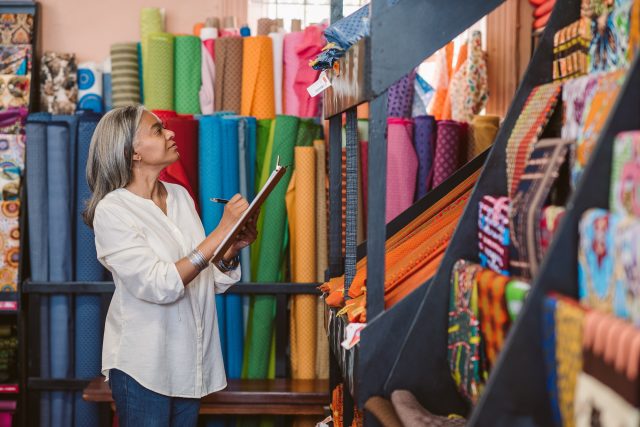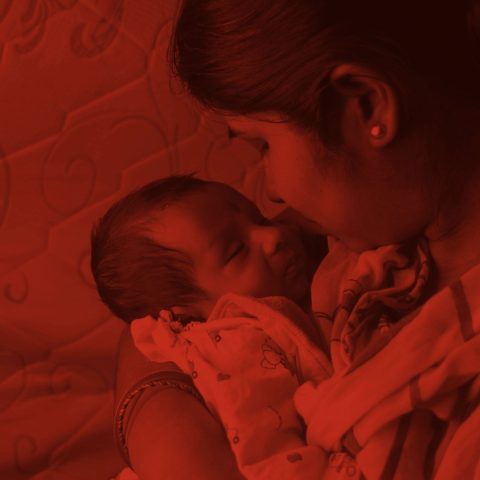
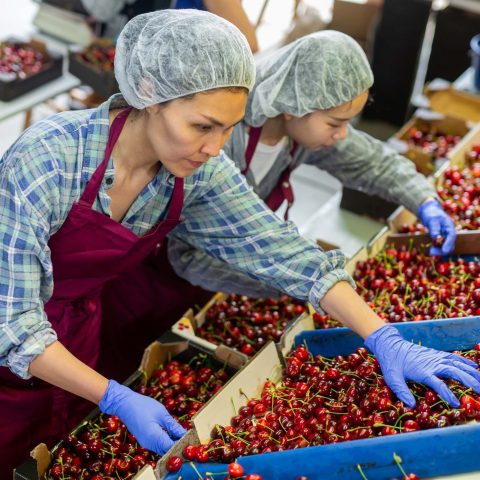
2023 Gender Benchmark
20 November 2023
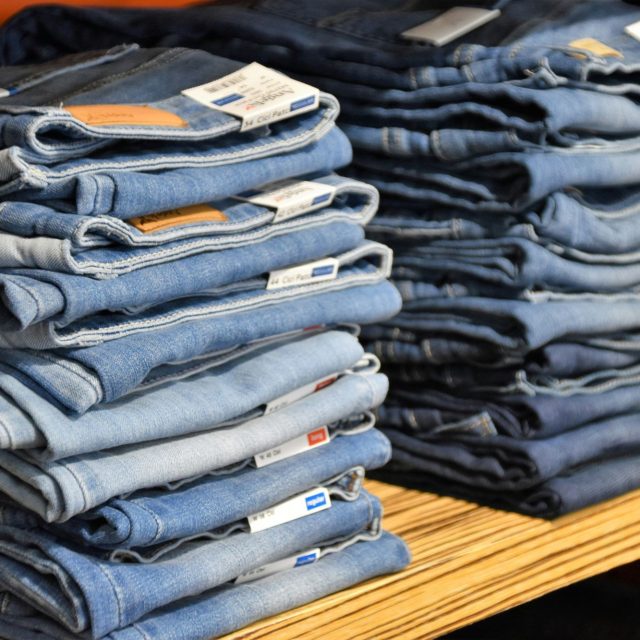
In this second iteration of the Gender Benchmark we rank 112 of the largest apparel and food and agriculture companies globally on their responsibility to drive and promote gender equality in their entire value chain. This is our second time assessing the apparel sector, and our first time assessing companies from the food and agriculture sector.
In addition to the benchmark, we also assessed 1,006 companies from ten sectors spanning more than 80 countries on the first steps that companies should be taking to address gender inequality. The key findings below contain insights from both our in-depth benchmark assessment as well our assessments of the 1,006 companies.

Five key findings
Results show that we still have a long way to go. At the same time, some companies are heading the right direction. They are ensuring that women are seen, heard and able to participate equally in the workforce.

Performance on gender equality is dismal; in a majority of companies, women are underrepresented and their concerns unheard
The overall average score across the 1,006 companies is as low as 17%. Even the best performing company obtains just over half of the total possible points. It’s no wonder performance is poor given that in most companies, women are not adequately represented in leadership and their concerns are left unheard.
Read more
Top companies outperform their peers in public commitments to gender equality and addressing unpaid care
The top 100 companies outperform their peers in driving gender equality by setting the tone at the top and providing childcare and family support. Of these top companies, 74% made a public commitment to gender equality and women’s empowerment compared to only 20% of the bottom 906 companies. Similarly, 59% of the top companies provide childcare and family support compared to only 19% of the other companies.
Read more
Companies treat parental leave as benefits offered to some employees, not a right for all
Only 36% of the 1,006 companies assessed disclose a parental leave policy, and the majority of these policies do not apply globally. Fewer companies provide details on the number of weeks offered as maternity and paternity leave, and in many cases it is unclear whether this leave is paid.
Read more
Most companies publicly prohibit violence and harassment in their workplaces, yet few take steps to prevent and remediate it
While 66% of the 1,006 companies have publicly available policies that prohibit violence and harassment at work, only 4% of them disclose details about their remediation processes. This is a concerning gap, because simply prohibiting something that is as deeply engrained in society as violence and harassment is not enough to ensure its eradication.
Read more
Suppliers are expected to respect human rights and promote gender equality but are set up to fail by buying companies
In the apparel sector, most companies set high standards for their suppliers regarding human rights and gender equality. However, only 27% of apparel companies enable their suppliers to meet their human rights and gender equality expectations through practicing responsible purchasing.
Read more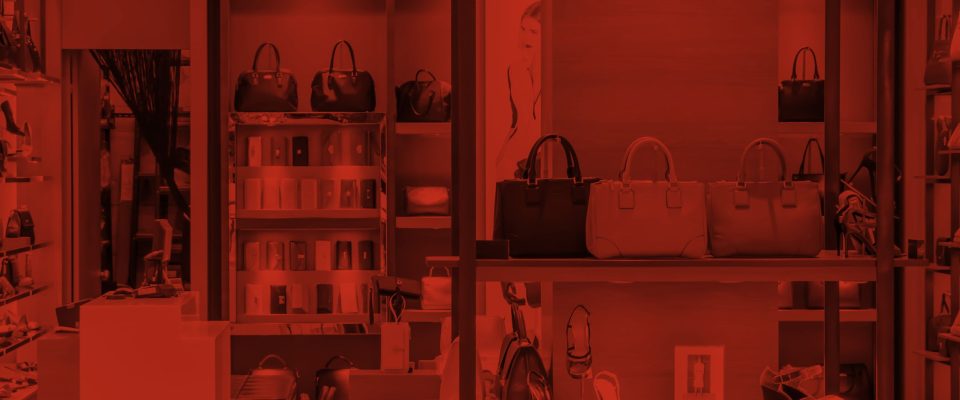
See how the companies performed
View rankingFurther reading
-
2023 Gender Benchmark Insights Report
This report builds on the key findings above, sharing further insights.
See report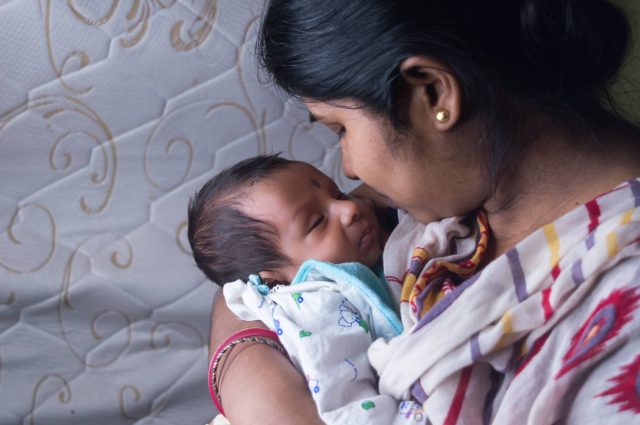
-

-
Press release
Read our press release, which focuses the 55 apparel companies assessed in both our 2023 Gender Benchmark and 2023 Corporate Human Rights Benchmark.
See press release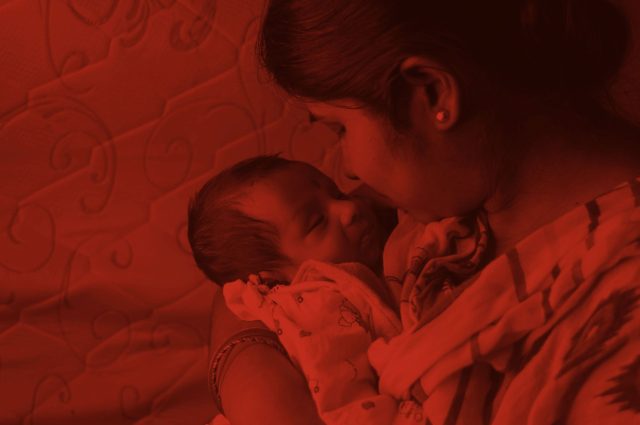
Where are the 112 benchmarked companies headquartered?
Locations
-
Title: Youngor Group
Place: Ningbo, China
Description: -
Title: Yum! Brands
Place: Louisville, KY, USA
Description: -
Title: Semir
Place: Wenzhou, China
Description: -
Title: Viterra
Place: Rotterdam, Netherlands
Description: -
Title: Monster Beverage
Place: Corona, KY, USA
Description: -
Title: Brown-Forman
Place: Louisville, Kentucky, USA
Description: -
Title: Loblaw
Place: Brampton, Canada
Description: -
Title: Aditya Birla Fashion and Retail
Place: Mumbai, India
Description: -
Title: Page Industries
Place: Bengaluru, India
Description: -
Title: Wesfarmers
Place: Perth, Australia
Description: -
Title: Falabella
Place: Santiago, Chile
Description: -
Title: SHEIN
Place: Singapore, Singapore
Description: -
Title: Decathlon
Place: Villeneuve-d'Ascq, France
Description: -
Title: Diageo
Place: London, United Kingdom
Description: -
Title: Fast Retailing
Place: Yamaguchi, Japan
Description: -
Title: Foot Locker
Place: New York, NY, USA
Description: -
Title: Fung Group
Place: Hong Kong, China
Description: -
Title: Gap
Place: San Francisco, CA, USA
Description: -
Title: General Mills
Place: Minneapolis, MN, USA
Description: -
Title: Gildan Activewear
Place: Montreal, Canada
Description: -
Title: Hennes & Mauritz (H&M)
Place: Stockholm, Sweden
Description: -
Title: Hanesbrands
Place: Winston-Salem, NC, USA
Description: -
Title: Heilan Group
Place: Jiangyin, China
Description: -
Title: Heineken
Place: Amsterdam, Netherlands
Description: -
Title: Hermes International
Place: Paris, France
Description: -
Title: Hormel Foods
Place: Austin, MN, USA
Description: -
Title: Hugo Boss
Place: Metzingen, Germany
Description: -
Title: Industria de Diseño Textil (Inditex)
Place: Arteixo, Spain
Description: -
Title: Itochu
Place: Tokyo, Japan
Description: -
Title: Kellogg's
Place: Battle Creek, MI, USA
Description: -
Title: Kering
Place: Paris, France
Description: -
Title: Kerry Group
Place: Tralee, Ireland
Description: -
Title: Kirin
Place: Tokyo, Japan
Description: -
Title: Kohl's
Place: Menomonee Falls, WI, USA
Description: -
Title: Kraft Heinz
Place: Chicago, IL, USA
Description: -
Title: Kroger
Place: Cincinnati, OH, USA
Description: -
Title: Kweichow Moutai
Place: Zunyi, China
Description: -
Title: Levi Strauss & Co.
Place: San Francisco, CA, USA
Description: -
Title: Lindt & Sprüngli
Place: Kilchberg, Switzerland
Description: -
Title: Lojas Renner
Place: Porto Alegre, Brazil
Description: -
Title: LPP
Place: Gdańsk, Poland
Description: -
Title: Lululemon Athletica
Place: Vancouver, Canada
Description: -
Title: LVMH Moet Hennessy - Louis Vuitton
Place: Paris, France
Description: -
Title: Macy's
Place: New York, NY, USA
Description: -
Title: Marks & Spencer
Place: Leeds, United Kingdom
Description: -
Title: McCormick
Place: Hunt Valley, MD, USA
Description: -
Title: McDonald's
Place: Chicago, IL, USA
Description: -
Title: Mondelez International
Place: Chicago, IL, USA
Description: -
Title: Mr. Price
Place: Durban, South Africa
Description: -
Title: Nestlé
Place: Vevey, Switzerland
Description: -
Title: Next
Place: Enderby, United Kingdom
Description: -
Title: Nike
Place: Beaverton, OR, USA
Description: -
Title: Nordstrom
Place: Seattle, WA, USA
Description: -
Title: PepsiCo
Place: Purchase, NY, USA
Description: -
Title: Pernod Ricard
Place: Paris, France
Description: -
Title: Pou Chen Corporation
Place: Taichung, Taiwan
Description: -
Title: Prada
Place: Milan, Italy
Description: -
Title: Puma
Place: Herzogenaurach, Germany
Description: -
Title: PVH
Place: New York, NY, USA
Description: -
Title: Ralph Lauren Corporation
Place: New York, NY, USA
Description: -
Title: Ross Stores
Place: Dublin, CA, USA
Description: -
Title: Ferragamo
Place: Florence, Italy
Description: -
Title: Seven & I
Place: Tokyo, Japan
Description: -
Title: Shenzhou International
Place: Ningbo, China
Description: -
Title: Shoprite
Place: Brackenfell, South Africa
Description: -
Title: Skechers
Place: Manhattan Beach, CA, USA
Description: -
Title: Souyute Group
Place: Dongguan, China
Description: -
Title: Starbucks
Place: Seattle, WA, USA
Description: -
Title: Suntory
Place: Osaka, Japan
Description: -
Title: Sysco
Place: Houston, TX, USA
Description: -
Title: Tailored Brands
Place: Houston, TX, USA
Description: -
Title: Tapestry
Place: New York, NY, USA
Description: -
Title: Target Corporation
Place: Minneapolis, MN, USA
Description: -
Title: Tesco
Place: Welwyn Garden City, United Kingdom
Description: -
Title: The Foschini Group (TFG)
Place: Cape Town, South Africa
Description: -
Title: The Hershey Company
Place: Hershey, PA, USA
Description: -
Title: The TJX Companies
Place: Framingham, MA, USA
Description: -
Title: Tyson Foods
Place: Springdale, AR, USA
Description: -
Title: Under Armour
Place: Baltimore, MD, USA
Description: -
Title: Unilever
Place: London, United Kingdom
Description: -
Title: URBN
Place: Philadelphia, PA, USA
Description: -
Title: VF Corporation
Place: Denver, CO, USA
Description: -
Title: Walmart
Place: Bentonville, AR, USA
Description: -
Title: Wilmar International
Place: Singapore, Singapore
Description: -
Title: Woolworths Group
Place: Sydney, Australia
Description: -
Title: Yili Group
Place: Hohhot City, China
Description: -
Title: Abercrombie & Fitch
Place: New Albany, IN, USA
Description: -
Title: Adidas
Place: Herzogenaurach, Germany
Description: -
Title: Aeon
Place: Chiba, Japan
Description: -
Title: Ahold Delhaize
Place: Zaandam, Netherlands
Description: -
Title: Alimentation Couche-Tard
Place: Laval, Canada
Description: -
Title: Amazon
Place: Seattle, WA, USA
Description: -
Title: American Eagle Outfitters
Place: Pittsburgh, PA, USA
Description: -
Title: Anheuser-Busch InBev
Place: Leuven, Belgium
Description: -
Title: ANTA International Group Holdings
Place: Jinjiang, China
Description: -
Title: Archer Daniels Midland
Place: Chicago, IL, USA
Description: -
Title: Asahi Group
Place: Tokyo, Japan
Description: -
Title: Associated British Foods
Place: London, United Kingdom
Description: -
Title: BRF
Place: Itajaí, Brazil
Description: -
Title: Burberry
Place: London, United Kingdom
Description: -
Title: Capri Holdings
Place: London, United Kingdom
Description: -
Title: Carlsberg
Place: Copenhagen, Denmark
Description: -
Title: Carrefour
Place: Massy, France
Description: -
Title: Carter's
Place: Atlanta, GA, USA
Description: -
Title: The Coca-Cola Company
Place: Atlanta, GA, USA
Description: -
Title: Coles Group
Place: Collingwood, Australia
Description: -
Title: Columbia Sportswear
Place: Portland, OR, USA
Description: -
Title: Compass Group
Place: Chertsey, United Kingdom
Description: -
Title: Conagra Brands
Place: Chicago, IL, USA
Description: -
Title: Constellation Brands
Place: Victor, NY, USA
Description: -
Title: Costco Wholesale
Place: Issaquah, WA, USA
Description: -
Title: Danone
Place: Paris, France
Description:
Previous findings
-
2021 Gender Benchmark
This first Gender Benchmark assesses and ranks 35 key apparel companies on their contribution to Sustainable Development Goal 5: gender equality and women’s empowerment.
See 2021 findings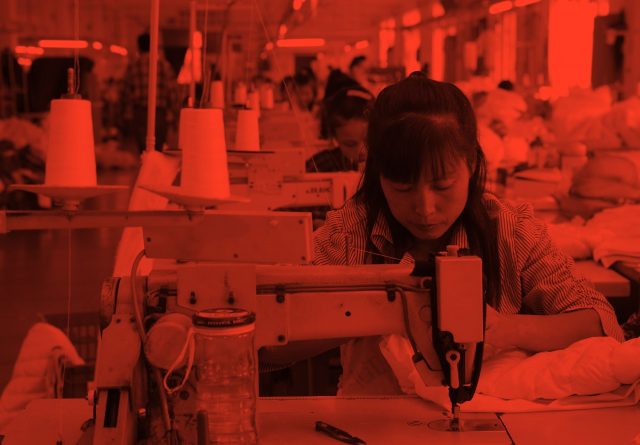
-
2020 Gender Benchmark Baseline Assessment
This assessment looks the gender data disclosures of the 35 most influential apparel companies globally.
See 2020 findings